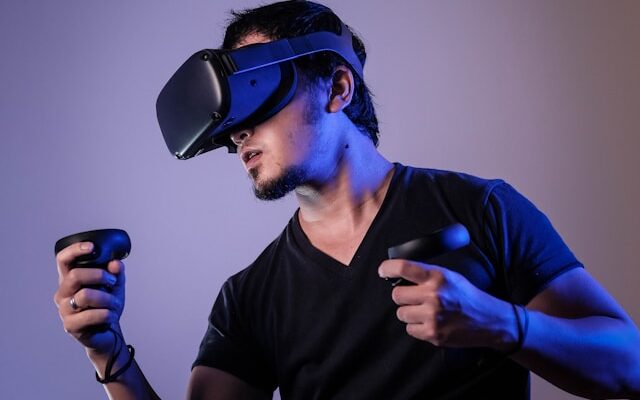As technology continues to advance, it inevitably impacts various aspects of our lives, including the way we experience live music. One such innovation that is gaining momentum in the music industry is virtual reality (VR) concerts. With VR concerts, fans now have the opportunity to attend live shows from the comfort of their own homes, opening up a whole new world of possibilities for both artists and music enthusiasts.
Artists like DJ Neon and indie band Prismatics have already embraced this new form of concert experience, hosting successful VR gigs that have captivated audiences worldwide. These virtual concerts go beyond just streaming a live performance; they offer interactive visuals and immersive soundscapes that transport fans into a whole new dimension of music.
One of the most exciting aspects of VR concerts is the ability to create a truly immersive experience. With the use of VR headsets, fans can feel like they are right there in the front row, even if they are thousands of miles away. They can explore virtual venues, interact with other concert-goers, and even have the option to switch between different camera angles to get the best view of their favorite artists.
For music fans who may not have the means or opportunity to attend live concerts in person, VR concerts offer an accessible and affordable alternative. Instead of spending money on travel expenses, accommodation, and tickets, fans can simply purchase a VR headset and enjoy the concert from the comfort of their own living rooms. This opens up the live music experience to a wider audience, breaking down geographical barriers and making it possible for fans from all over the world to connect and share their love for music.
Additionally, VR concerts have the potential to revolutionize the music festival scene. Instead of limiting the festival experience to a specific location and a set number of attendees, VR festivals can reach a global audience. Imagine attending a virtual Coachella or Glastonbury from the comfort of your own home, without the hassle of crowds or long lines. VR festivals could also provide a more inclusive environment, catering to individuals with disabilities or those who may not feel comfortable in large crowds.
Of course, there are some challenges and limitations to consider. VR technology is still evolving, and not everyone has access to the necessary equipment. Additionally, the social aspect of attending live concerts, such as the energy of the crowd and the spontaneous interactions, may be difficult to replicate in a virtual setting. However, as technology continues to improve and become more accessible, these challenges can be overcome.
Virtual reality concerts have the potential to revolutionize the way we experience live music. They offer a unique and immersive experience that brings fans closer to their favorite artists, regardless of their physical location. While they may not replace the traditional live concert experience entirely, VR concerts provide an exciting and accessible alternative that is likely to become more prevalent in the future. So, whether you’re a music enthusiast or an artist, it’s time to embrace the virtual reality revolution and explore the endless possibilities it holds for the future of live music.




